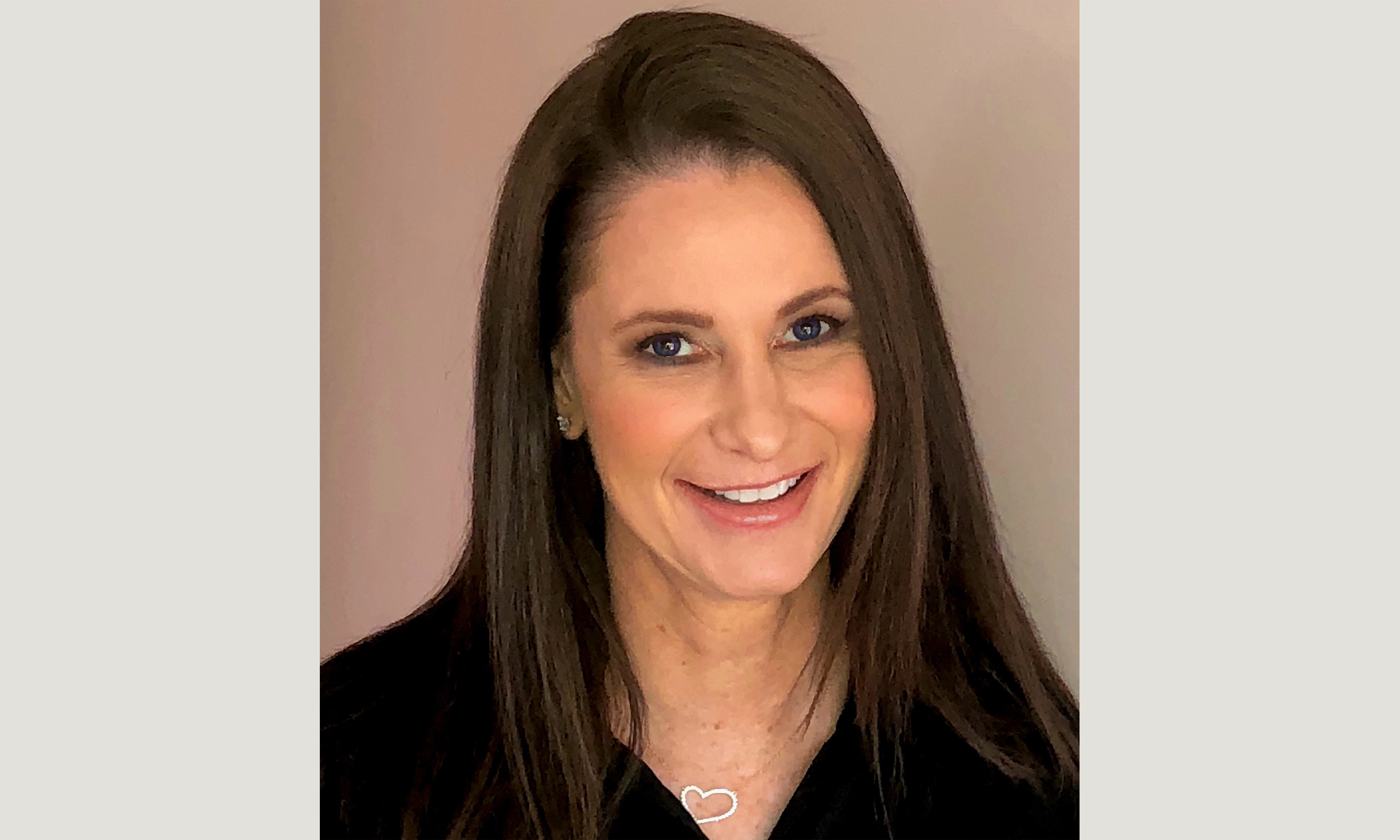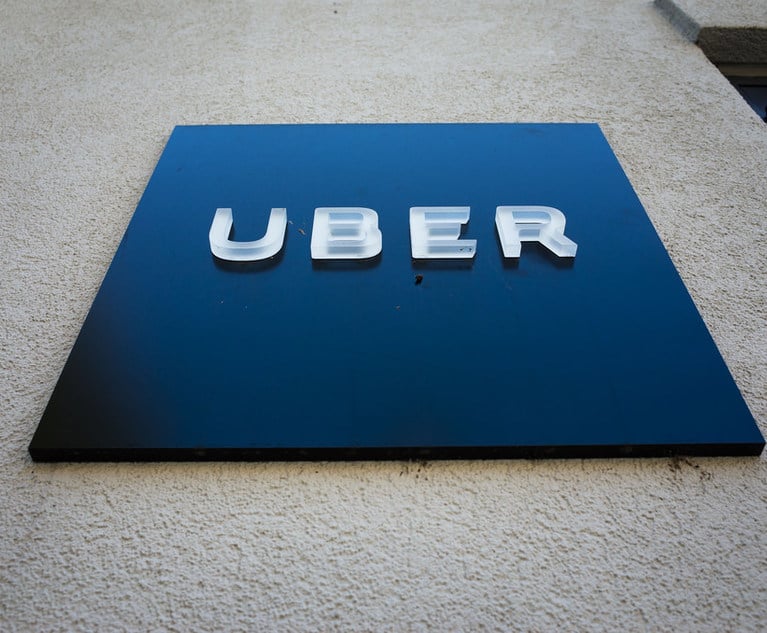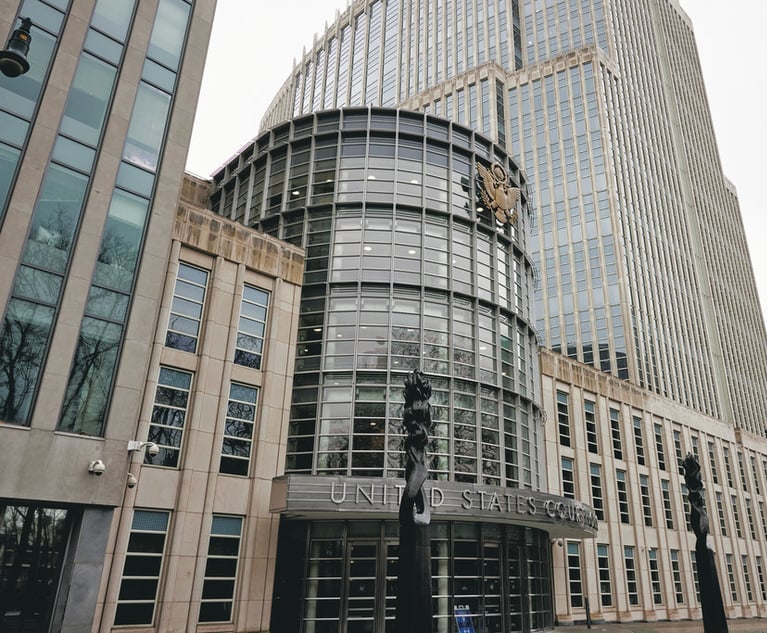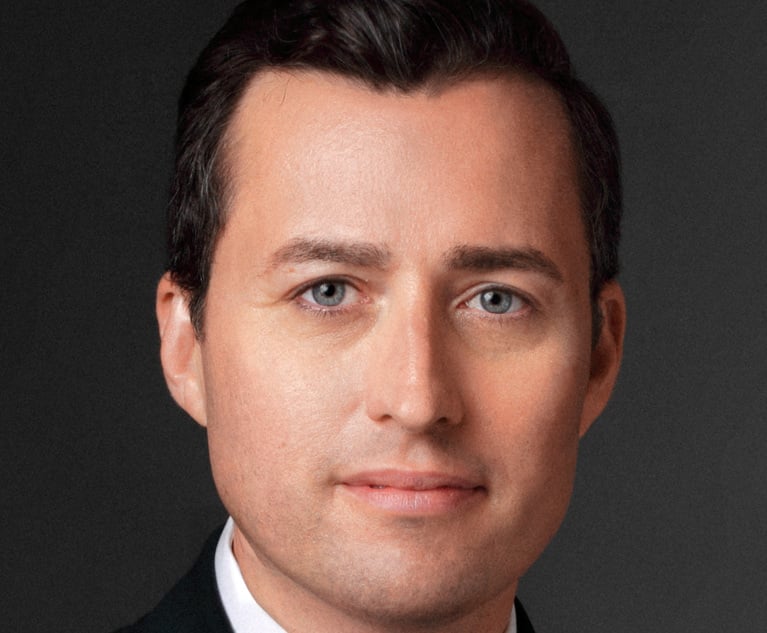You Can't Pause No-Fault Claims
Despite New York's full lockdown since March 23, with only the first steps of reopening beginning on June 8, insurers continued to receive new no-fault claims.The steps taken to "flatten the curve" created numerous challenges to the no-fault arena and there are a number of issues that have yet to be addressed.
July 17, 2020 at 10:30 AM
8 minute read
 Robyn Brilliant
Robyn Brilliant
When Governor Andrew Cuomo issued the New York on PAUSE Order amid the coronavirus pandemic, all but the most essential activities within the state stopped, including most business, all public gatherings, and travel. What the governor's order could not stop, however, were auto accidents and the injuries resulting from them. Despite New York State's full lockdown since March 23, 2020, with only the first steps of reopening beginning in New York City on June 8, 2020, insurers continued to receive new no-fault claims.
However, the steps taken to "flatten the curve" created numerous challenges to the no-fault arena. Although there were clear actions taken by Governor Cuomo, including Executive Orders 202.8, 202.14 and 202.28, which extended filing and statutory deadlines, and Executive Order 202.7, which took the unprecedented step of allowing notary filings to be completed utilizing audio-video technology rather than previously mandatory in-person appearances, there are a number of issues that have yet to be addressed.
Unanswered Questions
Due to limitations on travel and advisories against in-person appointments, many medical offices transitioned to seeing patients through telehealth systems. While the New York State Workers' Compensation Board has made specific revisions to 12 NYCRR 325 and 329 in order to incorporate telemedicine, and the Department of Financial Services (DFS) has asserted that telehealth visits are payable by insurers, how will no-fault insurers handle charges for telehealth consultations? Will medical providers conform to the appropriate telehealth billing as noted by the WCB, or will they attempt to bill for other services under telehealth provisions? Will insurers seek to peer review the necessity or frequency of these visits? Will the opinion of a physician who has not personally seen a patient in more than three months still be given deference over the opinion of an IME specialist who may have physically examined the patient more recently?
Similarly, while medical facilities are allowed to be open under the "PAUSE" Order, as they are deemed "essential services," are these medical facilities that are treating patients, either in person or through telehealth, and submitting billing on no-fault claims still expected to comply with the statutory timeframes? Many medical facilities use third-party billing companies, which would not qualify as essential services, to submit their bills, and while some medical facilities may have been able to generate and mail claim forms during the lockdown, will those medical facilities that could not be granted a "reasonable excuse" for their failure to comply with the statutory time frames? With such unanswered questions, judges and arbitrators will need to address these issues in an area of law where virtually nothing is clear cut, which will ultimately result in conflicting decisions.
The abundance of unanswered questions not only affects the medical providers but also affects the insurers. With insurance offices closed, or at best partially staffed, will insurers be afforded more than the permitted 30 days to process claims submitted while adjusters and mailroom staff are required to stay home?
Mailing Issues
Correspondingly, 11 NYCRR 65-3.5(b) requires all requests for verification to be mailed within 15 business days of the receipt of the claim form for which verification is sought. While it is true that insurers may properly extend this time on a first request pursuant to 11 NYCRR 65-3.8(l), this extension does not apply to follow-up requests, raising questions about how verification requested during the PAUSE will be viewed by the Courts. Likewise, what, if any, impact will the "PAUSE" Order have upon the 120-day deadline to deny for failure to receive verification, as set forth in 11 NYCRR 65-3.8(b)(3)?
Indeed, the problem of verification extends well beyond the deadlines for document submission, as issues regarding IMEs and EUOs will arise. Under 11 NYCRR 65-3.5(d), an IME must be scheduled to be held within 30 days of the receipt of the document for which verification is sought. Will the timeframe for mailing IME letters be extended for those IMEs which were attempted to be scheduled during the PAUSE where vendors may have been unable to mail the letters in a timely fashion? Similarly, given the reports of delays and even service interruptions affecting mail delivery, will claimants who failed to respond to IME or EUO requests be penalized, or will all such requests be deemed null?
Video Conferencing
Notwithstanding mailing issues, while some EUOs were held during the PAUSE via video conference, not all claimants consented to appear in this manner for a variety of reasons, including access to reliable Internet connection and various disabilities, creating potential delays in the handling of those claims. Similarly, as IMEs must be conducted in person, claims awaiting an IME will face tremendous delays, as will individuals who refuse or are unable to appear for scheduled IMEs due to safety and/or travel restrictions.
Will such refusals be valid as restrictions lift? Will such refusals be deemed unreasonable if the claimant is treating with their physician in person? Will all parties be afforded a cart blanche extension given the unusual circumstances caused by the PAUSE? To date, the DFS has failed to address any of the issues relating to the processing and handling of no-fault claims.
Arbitrations
With regard to arbitrations conducted through the American Arbitration Association (AAA), the PAUSE Order has caused delays in the submission of documents and the necessity of telephonic hearings. Although AAA has relied upon electronic submission of claims for years, given delays in obtaining documents and files due to the nationwide response to the pandemic, many insurers may not be able to comply with the time restrictions set forth in the NYS no-fault regulations, as obtaining necessary documentation, including affidavits, prior to the submission deadline may be problematic.
Given that under 11 NYCRR 65-4.2(b)(3)(ii), Respondents may only be granted a maximum extension of thirty days to submit their defense, and under 11 NYCRR 65-4.2(b)(3)(iii), commonly referred to as the "Rocket Docket" rule, any document submitted after the expiration of the Respondent's time to submit documents is marked "late" and may not be considered, how will arbitrators address late submissions affected by the PAUSE Order?
Similarly, 11 NYCRR 65-4.5(j) affords each party only one adjournment request before a party is forced to pay a minimum $50 fee. Although AAA transitioned all in-person hearings to telephonic appearances, if a witness or attorney is unavailable due to the restrictions imposed by the PAUSE Order, will additional adjournments be granted free of charge? Given that such adjournment requests and extensions have traditionally been at the discretion of the individual arbitrators and conciliation team supervisors, a uniform response will be necessary.
Court Deadlines
Conversely, the courts have been fairly straight forward about the impact of COVID-19 on deadlines, uniformly adjourning all matters, and implementing video conference appearances for those matters which were deemed urgent. However, given these uniform adjournments, and the fact that non-essential filings were prohibited, how will the courts handle the enormous calendar backlog? Even before the pandemic, the NYC Civil Courts were considerably behind and under 11 NYCRR 65-3.9, with interest accruing at two percent per month, if the plaintiff prevails, the insurer will be subject to higher costs resulting from the delays.
Revamping the Court System: A Silver Lining?
The pandemic has also shined a light on the antiquated NYC Civil Court system which still requires paper filings. If there can be any "silver lining" to this challenging time, it is that this pandemic may be the impetus to revamp the system. While the higher courts have used an e-filing system for years, on April 30, 2020, a digital document system was implemented for the Civil courts, called the Electronic Document Delivery System (EDDS). Unlike the e-filing system, uploading documents to the EDDS is not considered service upon the opposing counsel. Under the EDDS "FAQ," service of documents via e-mail is considered valid service. However, undoubtedly issues will arise where law firms reject documents stating there is no requirement to accept e-mail service.
We have yet to see how the courts, arbitrators and legislatures will address the unanticipated, quickly changing and unparalleled obstacles that have arisen due to the pandemic. In the upcoming days, weeks and months ahead, while we continue to experience shifts and challenges in so many facets of our lives, it is vital to remember that "this too shall pass," that this situation is "no-fault" of our own, and that if we all work together and learn from each other, we will get through this.
Robyn M. Brilliant is the owner of Robyn M. Brilliant, P.C. practicing in the areas of no-fault law and personal injury. Desiree Ortiz and Tori Buttrum, associates at the firm, and Brandon Hughes, a paralegal, assisted in the preparation of this article.
This content has been archived. It is available through our partners, LexisNexis® and Bloomberg Law.
To view this content, please continue to their sites.
Not a Lexis Subscriber?
Subscribe Now
Not a Bloomberg Law Subscriber?
Subscribe Now
NOT FOR REPRINT
© 2025 ALM Global, LLC, All Rights Reserved. Request academic re-use from www.copyright.com. All other uses, submit a request to [email protected]. For more information visit Asset & Logo Licensing.
You Might Like
View All
Uber Files RICO Suit Against Plaintiff-Side Firms Alleging Fraudulent Injury Claims
3 minute read
Insurance Company Sues Over 180 Health Care Providers for Fraud Under RICO
3 minute read
New York Court of Appeals Tightens Pleading Standards Against Insurance Policyholder
7 minute read
Amid Growing Litigation Volume, Don't Expect UnitedHealthcare to Change Its Stripes After CEO's Killing
6 minute readTrending Stories
- 1Uber Files RICO Suit Against Plaintiff-Side Firms Alleging Fraudulent Injury Claims
- 2The Law Firm Disrupted: Scrutinizing the Elephant More Than the Mouse
- 3Inherent Diminished Value Damages Unavailable to 3rd-Party Claimants, Court Says
- 4Pa. Defense Firm Sued by Client Over Ex-Eagles Player's $43.5M Med Mal Win
- 5Losses Mount at Morris Manning, but Departing Ex-Chair Stays Bullish About His Old Firm's Future
Who Got The Work
J. Brugh Lower of Gibbons has entered an appearance for industrial equipment supplier Devco Corporation in a pending trademark infringement lawsuit. The suit, accusing the defendant of selling knock-off Graco products, was filed Dec. 18 in New Jersey District Court by Rivkin Radler on behalf of Graco Inc. and Graco Minnesota. The case, assigned to U.S. District Judge Zahid N. Quraishi, is 3:24-cv-11294, Graco Inc. et al v. Devco Corporation.
Who Got The Work
Rebecca Maller-Stein and Kent A. Yalowitz of Arnold & Porter Kaye Scholer have entered their appearances for Hanaco Venture Capital and its executives, Lior Prosor and David Frankel, in a pending securities lawsuit. The action, filed on Dec. 24 in New York Southern District Court by Zell, Aron & Co. on behalf of Goldeneye Advisors, accuses the defendants of negligently and fraudulently managing the plaintiff's $1 million investment. The case, assigned to U.S. District Judge Vernon S. Broderick, is 1:24-cv-09918, Goldeneye Advisors, LLC v. Hanaco Venture Capital, Ltd. et al.
Who Got The Work
Attorneys from A&O Shearman has stepped in as defense counsel for Toronto-Dominion Bank and other defendants in a pending securities class action. The suit, filed Dec. 11 in New York Southern District Court by Bleichmar Fonti & Auld, accuses the defendants of concealing the bank's 'pervasive' deficiencies in regards to its compliance with the Bank Secrecy Act and the quality of its anti-money laundering controls. The case, assigned to U.S. District Judge Arun Subramanian, is 1:24-cv-09445, Gonzalez v. The Toronto-Dominion Bank et al.
Who Got The Work
Crown Castle International, a Pennsylvania company providing shared communications infrastructure, has turned to Luke D. Wolf of Gordon Rees Scully Mansukhani to fend off a pending breach-of-contract lawsuit. The court action, filed Nov. 25 in Michigan Eastern District Court by Hooper Hathaway PC on behalf of The Town Residences LLC, accuses Crown Castle of failing to transfer approximately $30,000 in utility payments from T-Mobile in breach of a roof-top lease and assignment agreement. The case, assigned to U.S. District Judge Susan K. Declercq, is 2:24-cv-13131, The Town Residences LLC v. T-Mobile US, Inc. et al.
Who Got The Work
Wilfred P. Coronato and Daniel M. Schwartz of McCarter & English have stepped in as defense counsel to Electrolux Home Products Inc. in a pending product liability lawsuit. The court action, filed Nov. 26 in New York Eastern District Court by Poulos Lopiccolo PC and Nagel Rice LLP on behalf of David Stern, alleges that the defendant's refrigerators’ drawers and shelving repeatedly break and fall apart within months after purchase. The case, assigned to U.S. District Judge Joan M. Azrack, is 2:24-cv-08204, Stern v. Electrolux Home Products, Inc.
Featured Firms
Law Offices of Gary Martin Hays & Associates, P.C.
(470) 294-1674
Law Offices of Mark E. Salomone
(857) 444-6468
Smith & Hassler
(713) 739-1250






